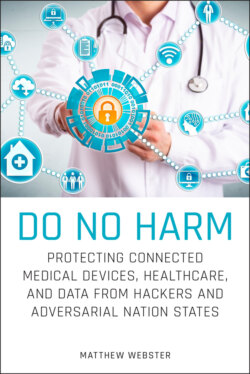Читать книгу Do No Harm - Matthew Webster - Страница 46
Data Is That Important
ОглавлениеNo matter your perspective on the Affordable Care Act (ACA), it has hastened the push toward Electronic Health Records (EHRs) that both technology and the HITECH Act began. It represents another step toward a more paperless office. The overarching goals are about transforming the medical care through the sharing and analysis of information. There are several benefits to doing so, but the outcome is more data in more locations.
Providing insurance to millions of Americans who did not have it before is a tremendous help—especially during a pandemic. Aggregating the information from insurance companies, hospitals, doctor's offices, and so on, can help leaders identify key neighborhoods where the problem is worse and provide appropriate responses. New York City, for example, is starting to experiment with closing areas that are harder hit from COVID.6 Whether or not that plan is successful, it demonstrates the power of what data can be used for. It also aids in community outreach so we can respond more locally to local problems. This would not be possible without solid actionable data being at least semi-centralized.
From a hospital perspective, that information is very valuable. Thirty years ago, if a patient came into a hospital unconscious, there was no information about that patient. Today, depending on the sharing capabilities of a region, doctors have the ability to look up the medical history of a patient or even lab tests they have had in the past. This prevents the waste of performing the tests again and provides healthcare professionals with invaluable information on how to treat patients more quickly based on their background. That extra information can help save both lives and money.
But from a pandemic perspective, it can help hospitals predict where the influx of patients will be coming from so they can better plan to handle those patients. Information is absolutely critical. Without it, hospitals can be overwhelmed. Even with that information, hospitals can be overwhelmed, but at least they are better prepared to save lives.
The ACA also has provisions for fighting fraud from potentially dishonest providers. Being specifically focused on the data, participating organizations can have their data accessed to search for fraudulent activity. Centralized data does have specific value as part of an overall fraud reduction strategy.7
The ACA also has provisions for Accountable Care Organizations (ACOs). The primary function of ACOs is to create cost savings by encouraging doctors, hospitals, and other health providers to coordinate patient care more efficiently. In order to do that, they need data from the members who are part of the network of services that the ACO is part of. So again, the drivers are there to have data in more locations.
In the final analysis we certainly have improvements to make, but we are making very larges strides as a society to cut back on individual medical expenses through the use of IoMT and better communication networks. Our care is becoming more personalized as we gather data on patients on a regular basis. We are responding to medical issues before they become major problems. The access we have to medical records is saving us from having to redo the same tests time and again. We are reducing our error rates, which is a boon for hospitals and patients alike.
